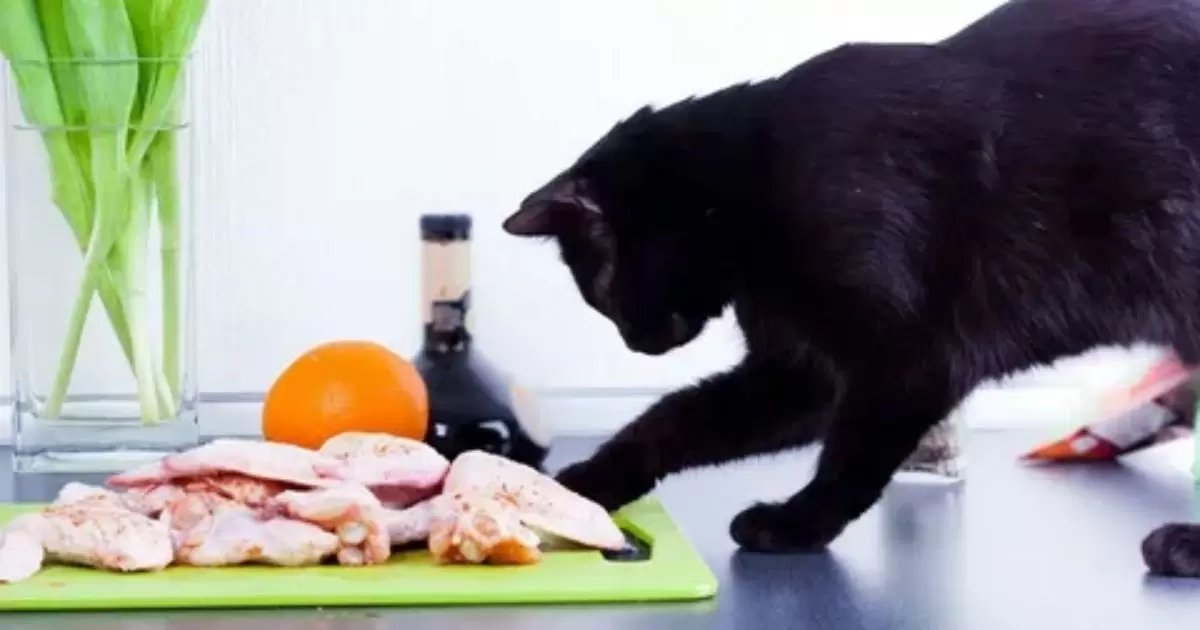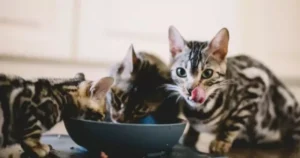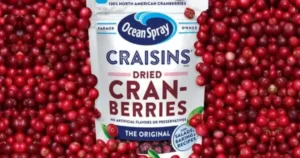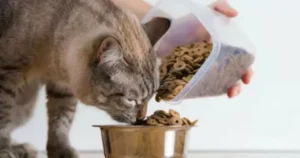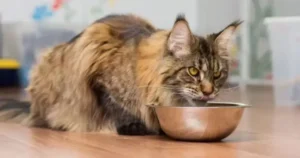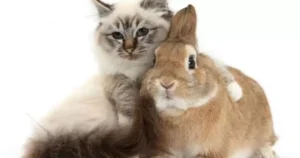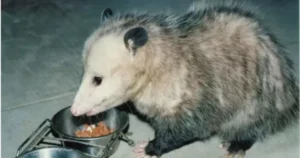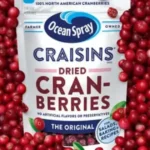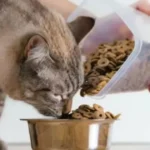Chicken cat food stands out as a top choice due to its nutritional benefits and palatability for felines. Rich in protein, it supports muscle development and provides essential amino acids for overall health. Additionally, chicken is easily digestible, making it ideal for cats with sensitive stomachs. Choosing chicken cat food ensures a well-balanced diet that your cat will love.
The Importance of a Healthy Diet for Cats
Proper nutrition is crucial for the overall well-being and longevity of our feline companions. As obligate carnivores, cats have specific dietary needs that must be met to maintain their health. A well-balanced diet not only provides energy but also supports various bodily functions, such as muscle growth, immune system strength, and reproductive health.
Cats, unlike dogs or humans, are true carnivores, meaning they rely solely on animal-based proteins and nutrients for their sustenance. Their digestive systems and metabolic processes have evolved over thousands of years to efficiently break down and absorb nutrients from animal sources. Attempting to feed a cat a vegetarian or vegan diet can lead to severe nutritional deficiencies and health complications.
The Importance of a High-Protein Diet for Cats
Cats require a diet rich in animal-based proteins to thrive. Unlike dogs or humans, cats lack the ability to produce certain essential amino acids, making it necessary to obtain them from their diet. A high-protein diet helps maintain lean muscle mass, supports a healthy metabolism, and promotes overall vitality.
Protein is the building block for almost every tissue in a cat’s body, including muscles, skin, hair, and nails. It is also crucial for the production of enzymes, antibodies, and hormones that regulate various bodily functions. Without adequate protein intake, cats can experience muscle wasting, poor coat condition, and a weakened immune system, making them more susceptible to infections and illnesses.
Furthermore, a high-protein diet can help maintain a cat’s ideal body weight and prevent obesity, a common issue among domestic felines. Protein is more satiating than carbohydrates or fats, meaning cats feel fuller for longer after consuming a protein-rich meal, reducing the likelihood of overeating or excessive snacking.
Benefits of Chicken Cat Food
Chicken is an excellent source of lean, easily digestible protein for cats, making it a popular choice for many pet food manufacturers. Here are some key benefits of incorporating chicken cat food into your feline friend’s diet:
1. Chicken is a Lean and Easily Digestible Protein Source
Chicken meat is a lean protein source, meaning it is low in fat and high in essential amino acids. This makes it easier for cats to digest and absorb the nutrients they need. Additionally, chicken is a highly palatable protein source, making it appealing to even the pickiest of eaters.
The high biological value of chicken proteins means that they are easily broken down and utilized by a cat’s body for various metabolic processes. This can be particularly beneficial for cats with sensitive digestive systems or those recovering from illness, as it reduces the strain on their gastrointestinal tract.
2. Chicken Contains Essential Amino Acids for a Shiny Coat, Strong Bones, and a Robust Immune System
Chicken is rich in amino acids like taurine, which is crucial for maintaining healthy heart function, vision, and reproductive systems in cats. It also provides arginine, which supports the production of bile acids, aiding in digestion and nutrient absorption.
Taurine is an amino acid that cats cannot produce on their own, making it an essential component of their diet. Deficiency in taurine can lead to serious health issues, such as dilated cardiomyopathy (a heart condition), retinal degeneration, and reproductive problems. By providing a source of taurine through chicken cat food, you can help ensure your feline friend’s overall well-being.
Additionally, chicken is a good source of other essential amino acids like methionine and cystine, which are important for maintaining a healthy coat and skin. These amino acids also contribute to the production of collagen, a crucial protein for strong bones and cartilage.
3. Cats Find the Flavor of Chicken Delicious, and So Cat Food Containing Chicken Can Be Highly Palatable (Depending on What Else is in it!)
Most cats find the taste and aroma of chicken irresistible, making it a popular choice for pet food manufacturers. However, it’s essential to remember that the overall palatability of a cat food depends on the other ingredients and flavors present, as well as the quality of the chicken used.
Cats are known to be finicky eaters, and their sense of taste and smell plays a crucial role in their food preferences. By incorporating chicken, a highly palatable protein source, into their diet, you can increase the likelihood of your cat enjoying their meals and consuming the necessary nutrients for good health.
However, it’s important to note that not all chicken cat foods are created equal. Low-quality chicken by-products or the presence of artificial flavors and preservatives can negatively impact the overall taste and nutritional value of the food. Always opt for high-quality, reputable brands that use whole, real chicken as the primary protein source.
Comparing Chicken Cat Food to Other Protein Sources
While chicken is an excellent protein source for cats, it’s not the only option available. Here’s a brief comparison of chicken cat food with other common protein sources:
Beef
Beef is another popular protein source in cat food. It is rich in essential nutrients like iron, zinc, and B vitamins. However, some cats may have sensitivities or allergies to beef, making chicken a better alternative.
Beef can be a highly digestible and nutritious protein source for cats, but it may not be suitable for all felines. Some cats may develop allergies or intolerances to beef proteins, leading to gastrointestinal distress, skin irritations, or other adverse reactions. In such cases, switching to a chicken-based diet can alleviate these issues and provide a more easily digestible protein source.
Additionally, beef is generally higher in fat content compared to chicken, which may not be ideal for cats prone to obesity or those with certain health conditions that require a lower-fat diet.
Fish
Fish, especially fatty fish like salmon, is an excellent source of omega-3 fatty acids, which are crucial for heart health, cognitive function, and a shiny coat. However, some fish varieties may contain higher levels of mercury, making moderation essential.
While fish can be a nutritious addition to a cat’s diet, it should be incorporated in moderation and with careful consideration of the specific fish species. Fatty fish like salmon, tuna, and sardines are rich in omega-3 fatty acids, which provide numerous health benefits, including supporting heart function, brain development, and a healthy skin and coat.
However, certain fish varieties, particularly larger predatory fish, can contain higher levels of mercury and other heavy metals, which can be toxic to cats in excessive amounts. It’s crucial to choose fish-based cat foods that use responsibly sourced, low-mercury fish varieties and to follow feeding guidelines to prevent overconsumption.
Turkey
Turkey is a lean protein source similar to chicken, but it may be less palatable for some cats. It contains higher levels of tryptophan, which can aid in relaxation and sleep.
Turkey can be a suitable alternative to chicken in cat food, as it is also a lean protein source with a similar amino acid profile. However, some cats may find the flavor of turkey less appealing compared to chicken, which could potentially lead to decreased food intake and appetite.
One potential benefit of turkey is its higher tryptophan content, an amino acid known for its calming and sleep-inducing effects. This could make turkey-based cat food a good option for felines that experience anxiety or have trouble sleeping, as it may help promote relaxation and restful sleep patterns.
Other Key Nutrients in Chicken Cat Food
While protein is the primary focus, high-quality chicken cat food should also provide other essential nutrients. Here are some key nutrients often found in chicken cat food:
Omega-6 Fatty Acids
Chicken is a good source of omega-6 fatty acids, which are essential for maintaining healthy skin and a shiny coat. These fatty acids also support the immune system and help regulate inflammation.
Omega-6 fatty acids, such as linoleic acid, play a crucial role in maintaining the integrity and health of a cat’s skin and coat. These fatty acids are essential for the production of prostaglandins, which regulate inflammation and immune responses in the body.
A deficiency in omega-6 fatty acids can lead to dry, flaky skin, a dull coat, and an increased susceptibility to skin infections. By providing a source of these essential fatty acids through chicken cat food, you can help promote a healthy, shiny coat and maintain your cat’s overall skin health.
Vitamin B6
Vitamin B6, also known as pyridoxine, is crucial for the proper functioning of the nervous system, immune system, and metabolism. It also supports the production of red blood cells and aids in hormone regulation.
Vitamin B6 is involved in numerous metabolic processes within a cat’s body, including the metabolism of proteins, fats, and carbohydrates. It also plays a role in the production of neurotransmitters, which are essential for proper nerve function and communication between cells.
Adequate levels of vitamin B6 can help support a healthy immune system, promote normal growth and development, and maintain proper hormone balance. A deficiency in this vitamin can lead to anemia, neurological issues, and impaired immune function.
Zinc
Zinc is an essential mineral that plays a vital role in immune function, wound healing, and skin health. It also supports the sense of taste and smell, which can be important for a cat’s appetite and overall well-being.
Zinc is necessary for the proper development and function of immune cells, making it an essential component for maintaining a robust immune system in cats. It also plays a crucial role in wound healing, as it is involved in the production of collagen and the formation of new skin cells.
Furthermore, zinc is important for maintaining a healthy sense of taste and smell, which can directly impact a cat’s appetite and enjoyment of food. Deficiencies in zinc can lead to a decreased sense of taste and smell, potentially leading to reduced food intake and malnutrition.
Selenium
Selenium is an antioxidant mineral that works alongside vitamin E to protect cells from oxidative stress. It also supports thyroid function and the immune system.
Selenium is a trace mineral that plays an important role in various bodily functions, including immune function, thyroid hormone production, and antioxidant defense mechanisms. It works in conjunction with vitamin E to neutralize free radicals and protect cells from oxidative damage, which can contribute to the development of various chronic diseases.
Adequate selenium intake is particularly important for maintaining a healthy immune system, as it supports the proper function of immune cells and helps regulate inflammatory responses. Additionally, selenium is essential for optimal thyroid function, which regulates metabolism and energy levels in cats.
Common Health Issues in Cats and How Chicken Cat Food Can Help
Feeding your cat a high-quality, balanced diet can help prevent and manage various health issues. Here’s how chicken cat food can contribute to your cat’s overall well-being:
Obesity
Obesity is a growing concern among domestic cats, as it can lead to various health problems, such as diabetes, joint issues, and respiratory difficulties. Chicken cat food, being a lean protein source, can help cats feel fuller for longer, reducing the risk of overeating and excessive weight gain.
Obesity in cats is often the result of a combination of factors, including a sedentary lifestyle, overfeeding, and a diet high in carbohydrates and fats. Chicken cat food, with its high protein content and low-fat composition, can be an effective tool in managing and preventing feline obesity.
The high protein content in chicken cat food promotes a feeling of satiety, or fullness, which can help cats consume fewer calories overall. Additionally, the lean nature of chicken means that the food is lower in calories and fat compared to other protein sources, making it easier to control caloric intake and achieve or maintain a healthy weight.
By incorporating a high-quality, chicken-based diet into your cat’s feeding regimen, you can help them feel satisfied after meals, reduce the risk of overeating, and support a healthy body weight, ultimately reducing the strain on their joints, respiratory system, and overall well-being.
Allergies and Sensitivities
Some cats may have food allergies or sensitivities, particularly to common protein sources like beef or dairy. Chicken is often a more easily digestible and hypoallergenic option, making it a suitable choice for cats with dietary sensitivities.
Food allergies and sensitivities in cats can manifest in various ways, including gastrointestinal issues (such as vomiting or diarrhea), skin irritations, and respiratory problems. Common allergens in cat food include beef, dairy, soy, and certain grains.
Chicken is often considered a more hypoallergenic protein source for cats, as it is less likely to trigger allergic reactions or sensitivities. This makes chicken cat food an excellent alternative for felines with known food allergies or intolerances.
When transitioning a cat with allergies or sensitivities to a chicken-based diet, it’s essential to carefully monitor their symptoms and consult with a veterinarian. In some cases, an elimination diet may be necessary to identify and eliminate potential allergens from their diet.
Urinary Tract Health Issues
Urinary tract problems, such as the formation of crystals and stones, can be a concern for cats. High-quality chicken cat food typically contains a balanced moisture content and appropriate levels of minerals like magnesium, which can help maintain urinary tract health.
Urinary tract health is a significant concern for cats, as they are prone to developing issues such as urinary tract infections (UTIs), crystals, and stones. These conditions can be painful and potentially life-threatening if left untreated.
One of the key factors in promoting urinary tract health is ensuring adequate water intake and a balanced mineral content in the diet. High-quality chicken cat food often contains a higher moisture content compared to dry kibble, which can help increase overall hydration and reduce the risk of crystal and stone formation.
Additionally, chicken cat food typically contains appropriate levels of minerals like magnesium, which can help regulate pH levels and prevent the formation of certain types of crystals and stones. By providing a diet that supports urinary tract health, you can help reduce the risk of these painful and potentially dangerous conditions in your feline friend.
Dental Health Issues and Periodontal Disease
Poor dental hygiene can lead to various health issues in cats, including periodontal disease. Chicken cat food often contains crunchy kibbles or dental treats, which can help remove tartar buildup and promote overall oral hygiene.
Dental health is often overlooked in feline care, but it is crucial for overall well-being. Periodontal disease, a condition characterized by inflammation and infection of the gums and supporting structures of the teeth, can lead to tooth loss, pain, and even systemic health issues if left untreated.
Many high-quality chicken cat foods are formulated with crunchy kibbles or dental treats that can help mechanically remove plaque and tartar buildup as your cat chews. This can promote better oral hygiene and reduce the risk of periodontal disease and other dental issues.
Additionally, some chicken cat foods may contain ingredients that support dental health, such as enzymes that help break down plaque or minerals that contribute to stronger tooth enamel.
By incorporating a chicken-based diet that supports dental health, along with regular dental cleanings and check-ups, you can help ensure your cat’s teeth and gums remain in optimal condition, reducing the risk of painful dental issues and promoting overall well-being.
Choosing the Right Chicken Cat Food for Your Pet
When selecting a chicken cat food, it’s essential to consider your feline friend’s specific needs based on age, breed, and any existing health conditions. Always read the ingredients list carefully and avoid products containing artificial additives, fillers, or unnecessary byproducts.
Here are some key factors to consider when choosing a chicken cat food:
Age
A kitten’s nutritional needs are different from an adult cat or a senior feline. Kittens require a higher caloric intake and a diet rich in protein, essential fatty acids, and vitamins to support their rapid growth and development. As cats age, their nutritional requirements change, and senior formulas may be necessary to address specific age-related issues, such as reduced kidney function or joint health concerns.
Breed
Certain cat breeds may have specific dietary requirements. For example, larger breeds like Maine Coons may require higher caloric intake and protein levels to support their larger frame and muscle mass. Conversely, smaller breeds like Siamese may have lower caloric needs and may benefit from a diet with a higher moisture content to support urinary tract health.
Existing Health Conditions
If your cat has been diagnosed with a specific health condition, such as diabetes, kidney disease, or food allergies, choosing a diet tailored to their needs is essential. Many high-quality pet food brands offer specialized formulas designed to support specific health concerns, which can be recommended by your veterinarian.
Ingredients List
When selecting a chicken cat food, always carefully read the ingredients list. Look for products that list whole, real chicken or chicken meal as the primary protein source, rather than chicken by-products or rendered fats. Avoid products containing artificial preservatives, colors, or flavors, as these can be potentially harmful to your cat’s health.
Additionally, be mindful of unnecessary fillers or carbohydrate sources, such as corn, wheat, or soy, as these can contribute to weight gain and digestive issues in some cats.
Transitioning Diet
If you are transitioning your cat to a new chicken-based diet, it’s essential to do so gradually to prevent digestive upset. Start by mixing a small amount of the new food with their current diet, and gradually increase the ratio of new food over a period of 7-10 days. This slow transition allows your cat’s digestive system to adjust to the new diet, reducing the risk of vomiting, diarrhea, or other gastrointestinal issues.
Remember, every cat is an individual, and their dietary needs may vary. Consulting with your veterinarian is always recommended to ensure you are providing the best nutrition for your feline companion’s specific requirements.
By incorporating a high-quality, chicken-based cat food into your pet’s diet, you can provide them with the essential nutrients they need for optimal health, vitality, and longevity.
Conclusion:
Choosing a high-quality, chicken-based cat food can provide numerous benefits for your feline friend’s overall well-being. Chicken is a lean, easily digestible protein source that is rich in essential amino acids, vitamins, and minerals. It supports a healthy coat, strong bones, and a robust immune system, while also being highly palatable to most cats.
Incorporating chicken cat food into your pet’s diet can help manage common health issues like obesity, allergies, urinary tract problems, and dental concerns. By carefully selecting a reputable brand with real chicken as the primary ingredient and considering your cat’s specific needs, you can ensure they receive the proper nutrition for a long, happy, and healthy life.
